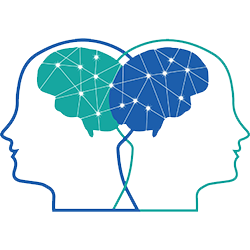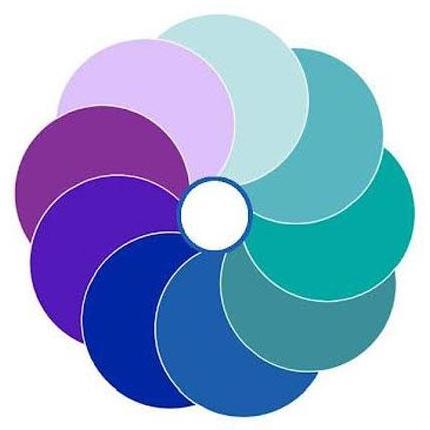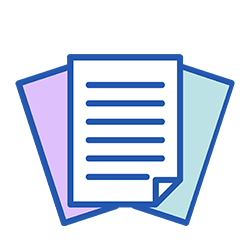ABOUT SUBSTANCE USE DISORDER
- 3,032 Tennesseans died of drug overdoses in 2020
- 40,888 admissions to state-funded substance use treatment and recovery programs in 2019
- 294,000 estimated Tennesseans with a mental illness and substance use disorder (TAADAS)
- 7,714,521 is an estimated total of drug-related ED visits in the U.S. in 2022. The rate of drug-related ED visits was 2,153 (1,765–2,540) per 100,000 individuals. (SAMHSA, Drug Abuse Warning Network)
- More than one in four adults living with serious mental health problems also has a substance use problem. Substance use problems occur more frequently with certain mental health problems:
- Depression
- Anxiety Disorders
- Schizophrenia
- Personality Disorder
- (SAMHSA.gov MH & SU)
Substance use (SU) is a more comprehensive term than drug use that encompasses not only use of drugs, but excessive or illegal use or misuse of any substance. (TDMHSAS Best Practice Tool Guide)
Use of recreational drugs, over the counter medications or prescription drugs can all lead to addiction. It frequently leads to problems at work, home, school, and in relationships, and leaving the user feeling isolated, helpless, or shamed. (TDMHSAS)
It is a shared belief that alcohol and drug abuse are treatable and preventable; that the availability of quality treatment and prevention services to all Tennessee citizens is important; and that by joining together, we can do more than we can do individually. (TAADAS.org)
INTERSECTIONALITY WITH BRAIN INJURY
After brain injury, 70-80% are discharged from healthcare facilities with a prescription for opioids. People with traumatic brain injury are ten times more likely to die of accidental overdose, in larger part because of cognitive and behavioral changes. Within 8-12 months after injury, 10-20% will develop a substance use problem and that number will grow over time. Approximately half of people receiving substance use treatment have at least one brain injury. As high as 75% of people seeking both mental health and substance use treatment also have a brain injury. Twenty-five percent of people entering brain injury rehabilitation are there as a result of drugs or alcohol and being intoxicated at the time of injury makes it harder for the brain to heal. Those with childhood TBI are more likely to use drugs and alcohol as adults. For every overdose death, there are approximately fifty overdose survivors, 90% of whom become impaired because of insufficient oxygen to the brain.
Best practice is to screen people in substance use treatment programs for a lifetime history of brain injury; screen for cognitive impairment; train SUD personnel about brain injuries and how to accommodate for changes; educate the person about their brain injury and refer to community-based resources for support.
TENNESSEE DEPARTMENT OF MENTAL HEALTH AND SUBSTANCE ABUSE SERVICES (TDMHSAS)
TDMHSAS, through its four (4) Regional Mental Health Institutes and contracted relationships with more than 300 providers across the state, delivers a full array of prevention, early intervention, treatment and recovery services for Tennesseans living with or at risk of developing mental illness or substance use issues. In all, our programs reach about 750,000 Tennesseans a year with our largest direct treatment services provided to uninsured Tennesseans through our Behavioral Health Safety Net and substance use Continuum of Care.
TDMHSAS contracts for statewide mobile crisis services for adult and children and youth. The department provides emergency inpatient psychiatric services to about 8,000 people a year through our Regional Mental Health Institutes located in Nashville, Memphis, Chattanooga, and Bolivar. TDMHSAS also serves as the licensing authority for all behavioral health providers with more than 1,850 licensed sites statewide. Our licensure database search is available at this link.
The department has a highly successful program to certify peers to use their lived experience of mental health and/or substance use challenges to help others. There are currently more than 1,000 Certified Peer Recovery Specialists who are active in their certification and are helping others. The success of this program has produced certifications for young adults and for family members. To learn more about TDMHSAS services: TN.gov/behavioral-health
TennCare is Tennessee’s managed care Medicaid program, which provides health insurance coverage to certain groups of low-income individuals such as pregnant women, children, parents or caretaker relatives of minor children, older adults, and adults with disabilities. To learn more about applying for TennCare: TennCare (tn.gov)
All three behavioral health services provided by TennCare contracted managed care organizations provide the following benefits/treatment:
- Routine Outpatient Therapy
- Medication Management (including Medication Assisted Treatment for Opioid Use Disorder and Alcohol Use Disorder)
- Intensive Outpatient Treatment Programs
- Partial Hospitalization Programs
- Residential Treatment
Amerigroup Buprenorphine Enhanced and Supportive Medication-Assisted Recovery and Treatment (BESMART) In-network Providers: tntn_caid_matproviderlist.pdf (myamerigroup.com)
If you need help accessing Substance Use Disorder Treatment: Amerigroup Behavioral Health Care Management: Behavioral health | Amerigroup Tennessee, 800-600-4441 or AGPBehavioralHealthRef@amerigroup.com
BlueCare SUD Information
If you need help accessing Substance Use Disorder Treatment:
BlueCare Website: https://bluecare.bcbst.com/, Behavioral Health Care Management: 888-416-3025
UnitedHealthcare SUD Information
If you need help accessing Substance Use Disorder Treatment: UnitedHealthcare Website:
https://www.uhc.com/member-resources/health-care-programs/substance-use, tn_case_management@uhc.com (800-690-1606)
Buprenorphine Enhanced and Supportive Medication-Assisted Recovery and Treatment (BESMART) https://www.uhcprovider.com/en/health-plans-by-state/tennessee-health-plans/tn-comm-plan-home/besmart.html
SCREENING TOOLS
Substance Abuse Screenings in Tennessee (SBIRT-TN) Screening, Brief Intervention, and Referral to Treatment: SBIRT is a substance abuse screening and referral to treatment initiative. It is patient-centered and offers education and early intervention to identify and address substance misuse in primary care settings. Patients are asked about their substance use confidentially.
| Instrument | Population(s) | Description |
| Alcohol, Smoking, and Substance Involvement Screening Test (ASSIST) | Adults, Adolescents | An 8-item screening tool developed for the World Health Organization (WHO) by an international group of substance abuse researchers to detect and manage substance use and related problems in primary and general medical care settings. Includes a patient feedback report card. Available in several languages. |
| Alcohol Use Disorders Identification Test (AUDIT) | Adults, Adolescents | A 10-item screening tool developed by WHO to identify persons whose alcohol consumption has become hazardous or harmful to their health. Available in English-, Spanish-, and Slovenian-language versions. |
| AUDIT-C | Adults | The first 3 questions of AUDIT (those that focus on alcohol consumption). |
| Brief Alcohol Screening Instrument for Medical Care (BASIC) | Adults | This very brief questionnaire (6 items) screens for alcohol use disorders and for at-risk drinking. Self-administered questionnaire. |
| CAGE (Cut down, Annoyed, Guilty, Eyeopener) | Adults (people older than age 16) | A 4-item, nonconfrontational questionnaire for detecting alcohol problems. Questions are usually phrased as “have you ever” but may also focus on present alcohol problems. |
| CRAFFT (Car, Relax, Alone, Forget, Family or Friends, Trouble) | Adolescents | A 6-item screening instrument. Test covers alcohol and drugs and situations that are relevant to adolescents. |
| Drug Abuse Screening Test (DAST) | Adults | A 20- and 28-item adaptation of the Michigan Alcohol Screening Test (MAST) to detect consequences related to drug abuse without being specific about the drug, thus alleviating the necessity of using different instruments specific to each drug. |
| DAST-A | Adolescents | A 28-item DAST for adolescents |
| Fagerstrom Test for Nicotine Dependence | Adults | A 6-item test evaluating cigarette consumption, the compulsion to use, and dependence. Screens for nicotine dependence. Severity rating can be used for treatment planning. |
| Michigan Alcohol Screening Test (MAST) | Adults, Adolescents, Seniors | A 25-item instrument providing a general measure of lifetime alcohol problem severity that can be used for choosing treatment intensity and guiding inquiry into alcohol-related problems. A 13 item version (Short MAST) and geriatric version (MAST-G) are available. |
| NIDA Drug Use Screening Tool | Adults | A 1- to 7-question screening tool adapted by the National Institute on Drug Abuse from the WHO’s ASSIST. |
| TWEAK (Tolerance, Worried, Eye-openers, Amnesia, [K] Cut down) | Adults, Pregnant women | A 5-item scale to screen for risky drinking. |
Institute for Research, Education & Training in Addictions (IRETA) SBIRT Toolkit: https://ireta.org/resources/sbirt-toolkit/#screening
University of Washington Substance Use Screening & Assessments Instrument Database: http://lib.adai.washington.edu/instruments/
CRISIS INTERVENTION TOOLS
Tennessee REDLINE: 24/7/365 resource for substance abuse treatment referrals. Anyone can call or text 800-889-9789 for confidential referrals.
TN Statewide Crisis Phone Line: 24 hours/365 days; a free resource for anyone experiencing a mental health crisis; provides support, guidance and appropriate community supports. (855-274-7471)
WEBSITES
Amerigroup: Tennessee Medicaid | Amerigroup (myamerigroup.com)
BlueCare: BlueCare Tennessee (bcbst.com)
United HealthCare: Tennessee UnitedHealthcare Community Plan | UnitedHealthcare Community Plan: Medicare & Medicaid Health Plans (uhccommunityplan.com)
Project Rural Recovery: Mobile health clinics to serve behavioral and physical health needs of rural TN.
Substance Use Prevention Coalitions across TN
SAMHSA’s national youth substance use prevention campaign "Talk. They Hear You." Resources for parents, caregivers, educators, and community members.
Non-stigmatizing language guides: Shatterproof’s Addiction Language Guide, End The Syndemic Language Guidance
INFOGRAPHICS
TRAININGS
SAMHSA Practitioner Training https://www.samhsa.gov/practitioner-training
National Institute on Alcohol Abuse and Alcoholism https://www.niaaa.nih.gov/health-professionals-communities/core-resource-on-alcohol (Provides up to 14 CME credits)
Regional Overdose Prevention Specialists (ROPS): Provide training and education on opioid overdose and distribute naloxone for overdose prevention.
SUPPORT GROUPS
SAMHSA provides the best resource for finding local support groups that accommodate many different types of recovery and support needs. https://www.samhsa.gov/find-support/health-care-or-support/support-group-or-local-program
Lifeline Peer Project: Representatives help start Alcoholics Anonymous, Narcotics Anonymous, Celebrate Recovery, and other self-help support groups. They help connect individuals with treatment and they speak publicly about their own personal experience with recovery. Lifeline and Faith-Based Coordinators Contact Info and Map
TN Brighter Futures groups that are a part of this System of Care:
- TN Dept. of Mental Health & Substance Abuse Services
- TennCare: Amerigroup, BlueCare, UnitedHealthcare
- TN Assoc. of Alcohol Drug & other Addiction Services
- TN Co-occurring Disorders Collaborative
- Regional Opioid Prevention Specialists/Save a Life Program
- Volunteer Behavioral Health Care System
- TN Assoc. of Mental Health Organizations
- TN Assoc. of Recovery Court Professionals – TARCP
- Tennessee System of Care






